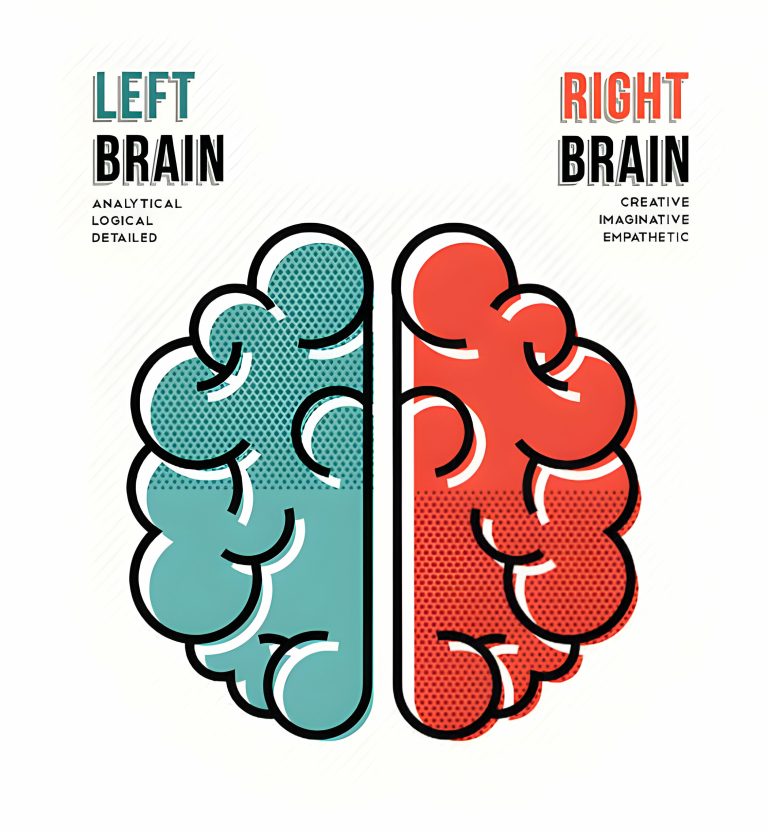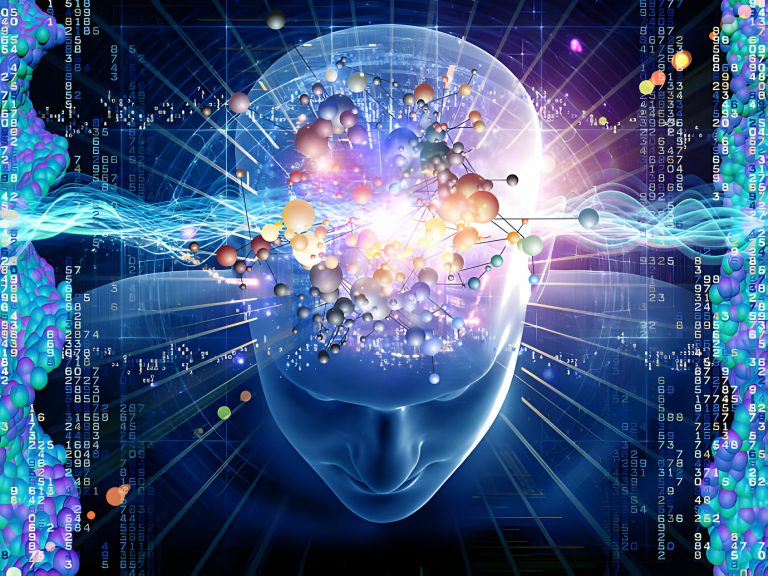Your Brain Fog May Be an Anxiety Symptom — Here’s How to Deal with It

Brain fog is a term used to describe cognitive difficulties such as poor concentration, memory issues, and inability to think clearly. This mental cloudiness can make it challenging to focus on tasks and can impact daily functioning. For some individuals, brain fog may be a symptom of anxiety, a common mental health condition characterized by feelings of worry and unease.
People experiencing anxiety-related brain fog may find themselves struggling to complete tasks that were once easy for them. This can lead to frustration and feelings of inadequacy. Additionally, anxiety can amplify the cognitive symptoms of brain fog, making it even more difficult to think clearly and make decisions. Understanding the relationship between anxiety and brain fog is crucial in finding effective ways to cope with these symptoms.
In the upcoming sections, we will explore strategies for managing anxiety-related brain fog. This will include lifestyle changes, cognitive behavioral techniques, and stress-reducing activities that can help alleviate cognitive difficulties. By addressing the root cause of brain fog, individuals can improve their mental clarity and overall well-being. Understanding how anxiety contributes to brain fog is the first step in finding relief from these challenging symptoms.
- Brain fog is a common symptom of anxiety and can affect cognitive abilities such as memory, concentration, and mental clarity.
- Factors contributing to brain fog include stress, lack of sleep, poor diet, and hormonal imbalances.
- To manage brain fog related to anxiety, techniques such as cognitive behavioral therapy, mindfulness, exercise, and proper nutrition can be effective.
- Establishing a routine, setting realistic goals, and incorporating relaxation techniques into daily life can also help alleviate symptoms of brain fog.
- It is important to seek professional help if symptoms of anxiety and brain fog significantly impact daily functioning and quality of life.
Common Terms Related to Brain Fog and Anxiety Symptoms
Brain Fog: Also known as mental fatigue, brain fog is a term used to describe a feeling of mental confusion or lack of mental clarity. People experiencing brain fog may have trouble focusing, remembering things, or processing information.
Anxiety Symptoms: Anxiety is a normal emotion that everyone experiences from time to time. However, when feelings of anxiety become excessive, it can lead to a wide range of symptoms, including restlessness, irritability, and difficulty concentrating.
Living with brain fog can be challenging, especially if it is a symptom of an underlying anxiety disorder. Anxiety disorders can manifest in various ways, including generalized anxiety disorder, social anxiety disorder, panic disorder, and more. When anxiety levels are high, cognitive function can become impaired, leading to symptoms of brain fog. It is essential to address both the anxiety and brain fog symptoms to improve overall mental well-being. Identifying the root cause of the anxiety and working with a mental health professional can help individuals develop coping strategies to manage both the anxiety symptoms and brain fog effectively.
One commonly overlooked factor that can contribute to brain fog is lack of sleep. Sleep plays a crucial role in cognitive function, memory consolidation, and overall brain health. Chronic sleep deprivation can lead to cognitive impairment, difficulty concentrating, and memory issues, all of which are common symptoms of brain fog. Prioritizing good sleep hygiene habits, such as maintaining a consistent sleep schedule, creating a relaxing bedtime routine, and creating a comfortable sleep environment, can help improve sleep quality and reduce brain fog symptoms associated with poor sleep.
Yoga
Yoga is a popular form of exercise that focuses on breathing techniques, flexibility, and strength. There are many different styles of yoga, including Hatha, Vinyasa, and Bikram. Practicing yoga regularly can help reduce stress and anxiety, improve concentration, and increase overall well-being.
Medication
There are various medications available to help manage anxiety symptoms. Some common options include selective serotonin reuptake inhibitors (SSRIs), benzodiazepines, and beta blockers. It is important to consult with a healthcare professional before starting any medication to ensure that it is appropriate for your specific needs.
Therapy
Therapy, such as cognitive behavioral therapy (CBT) or mindfulness-based therapy, can be effective in treating anxiety and associated symptoms like brain fog. Therapy can help individuals learn coping mechanisms, identify triggers, and develop healthy thought patterns to better manage anxiety and improve cognitive function.
Healthy Lifestyle Changes
Making healthy lifestyle changes, such as eating a balanced diet, getting regular exercise, and practicing self-care, can all contribute to reducing anxiety symptoms and improving cognitive function. Additionally, avoiding alcohol, caffeine, and nicotine can also help alleviate symptoms of brain fog associated with anxiety.
1. What exactly is brain fog?
Brain fog is a term used to describe mental confusion or lack of mental clarity. It can manifest as forgetfulness, difficulty concentrating, and feeling disorganized. Brain fog can be a symptom of various underlying issues, including anxiety, stress, fatigue, and certain medical conditions.
2. How does anxiety contribute to brain fog?
Anxiety can contribute to brain fog in several ways. When you’re anxious, your body goes into a heightened state of alertness, which can lead to racing thoughts and difficulty focusing. This heightened state of arousal can also deplete your cognitive resources, making it harder to think clearly and remember things. Additionally, anxiety can interfere with sleep, which is essential for cognitive function.
3. What are some ways to deal with brain fog caused by anxiety?
One way to deal with brain fog caused by anxiety is to practice stress-reducing techniques, such as deep breathing, meditation, or yoga. These techniques can help calm your mind and body, reducing the impact of anxiety on your cognitive function. It’s also important to prioritize self-care, including getting enough sleep, eating a healthy diet, and staying physically active. Additionally, seeking support from a mental health professional can help you address the underlying anxiety that may be contributing to your brain fog.
4. Can lifestyle changes help improve brain fog related to anxiety?
Yes, making certain lifestyle changes can help improve brain fog related to anxiety. Eating a balanced diet rich in fruits, vegetables, whole grains, and lean proteins can help support cognitive function. Staying hydrated, getting regular exercise, and managing stress can also have a positive impact on brain fog. Prioritizing self-care and setting boundaries to reduce stress can help you manage anxiety and improve mental clarity.
5. Are there cognitive exercises that can help combat brain fog caused by anxiety?
Cognitive exercises, such as puzzles, brain games, and mindfulness practices, can help combat brain fog caused by anxiety. These exercises can help improve focus, memory, and cognitive flexibility, which can enhance mental clarity. Engaging in activities that stimulate your brain, such as reading, learning a new skill, or practicing a musical instrument, can also help sharpen your cognitive abilities and reduce brain fog.
6. How can establishing a routine help combat brain fog related to anxiety?
Establishing a routine can help combat brain fog related to anxiety by providing structure and predictability to your day. Following a consistent schedule for meals, exercise, sleep, and work can help regulate your body’s physiological processes and improve cognitive function. Setting aside time for relaxation and self-care can also help reduce stress and promote mental clarity. Overall, creating a routine that prioritizes healthy habits and self-care can be beneficial for managing brain fog caused by anxiety.
7. Is it important to seek professional help for brain fog and anxiety?
Seeking professional help for brain fog and anxiety is important, especially if these symptoms are significantly impacting your daily life and functioning. A mental health professional, such as a therapist or counselor, can help you identify the underlying causes of your anxiety and brain fog and develop a personalized treatment plan. They can also provide you with coping strategies, relaxation techniques, and other tools to help you manage these symptoms more effectively. Remember, it’s okay to ask for help and seek support when needed.
8. Can medication be helpful in treating brain fog associated with anxiety?
Medication can be helpful in treating brain fog associated with anxiety, especially for individuals with severe or persistent symptoms. Antidepressants, anti-anxiety medications, and other psychiatric medications can help reduce anxiety symptoms and improve cognitive function. It’s important to work with a healthcare provider to determine the most appropriate medication and dosage for your specific situation. Medication should be used in conjunction with other therapeutic interventions, such as therapy, lifestyle changes, and stress-management techniques, for optimal results.
9. How can social support play a role in managing brain fog and anxiety?
Social support can play a significant role in managing brain fog and anxiety. Connecting with friends, family members, or support groups can provide emotional support, empathy, and understanding during difficult times. Talking about your feelings and experiences with trusted individuals can help you feel less alone and more supported. Social support can also provide opportunities for relaxation, distraction, and enjoyment, which can help alleviate anxiety and improve mental clarity.
10. Are there any natural remedies or supplements that can help alleviate brain fog related to anxiety?
Some natural remedies and supplements may help alleviate brain fog related to anxiety. For example, certain herbs, such as ginkgo biloba and bacopa monnieri, are believed to improve cognitive function and memory. Omega-3 fatty acids, found in fish oil and flaxseed oil, may also support brain health and reduce inflammation. However, it’s important to consult with a healthcare provider before taking any supplements, as they may interact with medications or have potential side effects. Incorporating these remedies under professional guidance may help alleviate brain fog and support overall cognitive well-being.
Final Thoughts
Dealing with brain fog as a symptom of anxiety can be challenging, but understanding the underlying causes and implementing coping strategies can help alleviate its effects. It is important to address both the anxiety and brain fog symptoms simultaneously to effectively manage them. By practicing mindfulness, engaging in regular exercise, getting enough sleep, and seeking professional help if needed, individuals can take control of their symptoms and improve their overall quality of life.
Remember that brain fog is a common symptom of anxiety and is not something to be ashamed of. It is important to prioritize self-care and listen to your body in order to identify triggers and implement coping mechanisms that work best for you. By taking small steps each day to manage both anxiety and brain fog, you can better navigate the challenges that come with these symptoms and lead a more fulfilling and balanced life.
In conclusion, navigating brain fog as an anxiety symptom requires patience, self-compassion, and a willingness to try different coping strategies. By taking proactive steps to address both the underlying anxiety and brain fog, you can effectively manage these symptoms and improve your overall well-being.




